Part 7.
Life in a rural Norfolk. 1884-1885
Throughout his life, Morris Fuller was nothing if not endlessly industrious. Up until his
appointment to St Andrew’s Great Ryburgh, his published literary efforts were mostly
confined to sermons and the exposition of arcane historical viewpoints in support of the
Anglican Church as he saw it. Titles such as “Our established Church” "The Court of Final
Appeal” "The Apellate Jurisdiction of the Crown in Ecclesiatical Cases” flowed from his pen
Although he can never, (inspite of his criticisms of others who inflict the “Charybdis of prolixity”
on a reader) use one word when twenty-one will do, I include a brief section of his Preface to
his most celebrated writings, ”The Life, Times and Writings of Thomas Fuller, D.D…….” Vol 1.
Vol 2 . Published in 1884, it ran to several further editions, and in it he does reveal just a very
little of himself, pointing to what motivated him throughout his life:
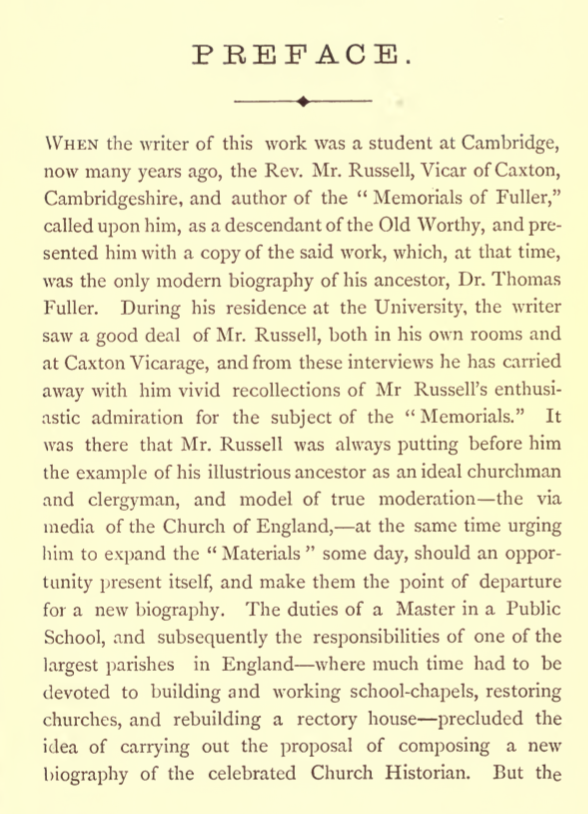
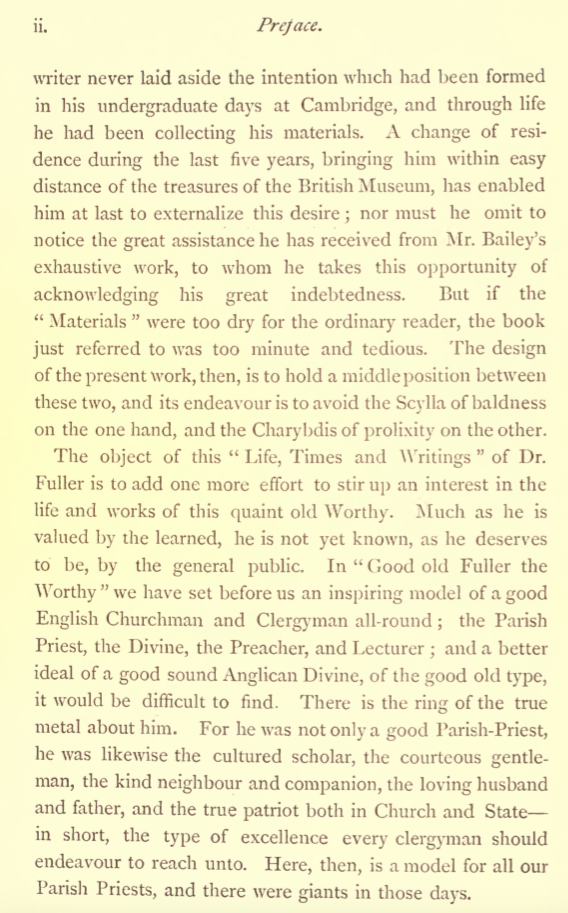
His move to East Molesey was what gave him the access to the British Museum and his
move to Ryburgh gave him the time to get the book into print. In 1883, prior to leaving
Molesey he had published 20 Sermons in the form of 500 pages of argument entitled
“The Lord’s Day or Christian Sunday”.
Again a short extract from the Preface tells us why:
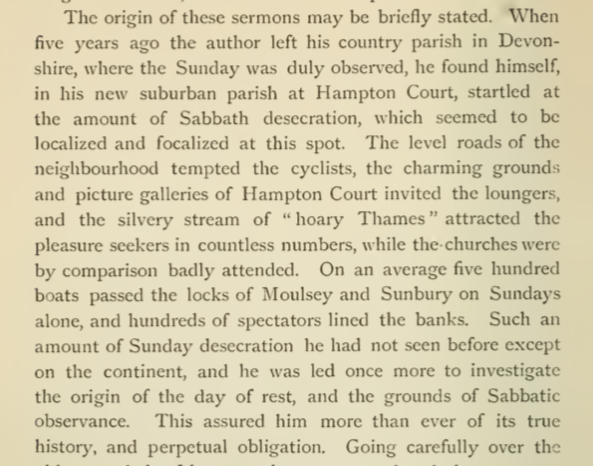
His move to Ryburgh seems to have put him into prime publishing mode, both in book
form such as “A Voice in the Wildeness", 26 sermons from his Devon days following
the course of the Christian year. and finally his his magnum opus, (the biography and
so much more) of, as it turns out, not his worthy ancestor Thomas Fuller.
His first appearance in St Andrew’s was on Whit Sunday June 6th 1884 and not
surprisingly, a good turn out for the occasion was reported. The concept of
competitive sermonising does seem rather curious to the 21st century ear!
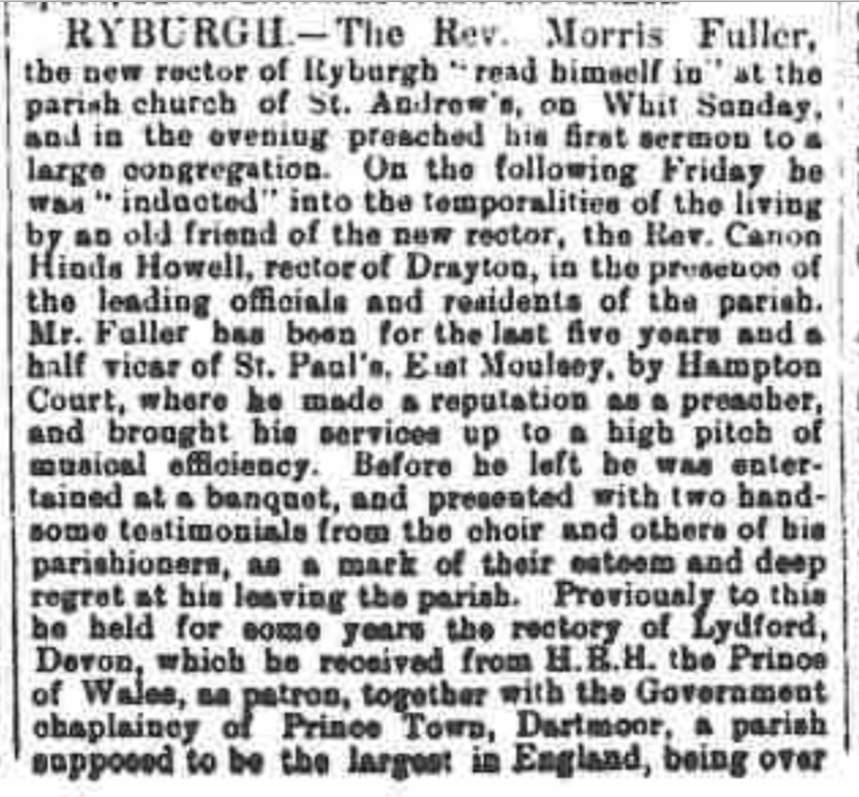
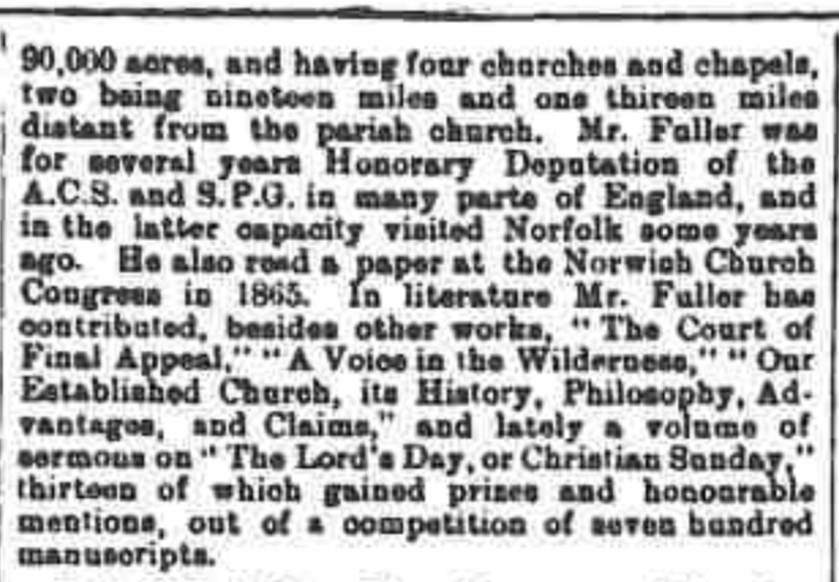
Induction to the Little Ryburgh vicarage was however officially carried out in August with a
certain amount of Inter-Deanery political correctness that perhaps reflects the state of
independence manifest between the Ryburghs, (even then!).
Lynn Advertiser August 16th 1884
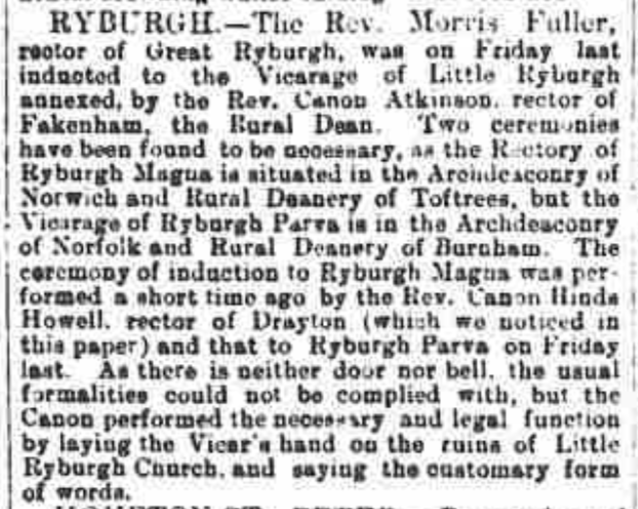
During this first year he certainly must have spent time and money promoting his increasing
number of publicatons and by July we find quite large advertisements in the local press for
his wares to that effect:
This one from Lynn Advertiser October 18th 1884
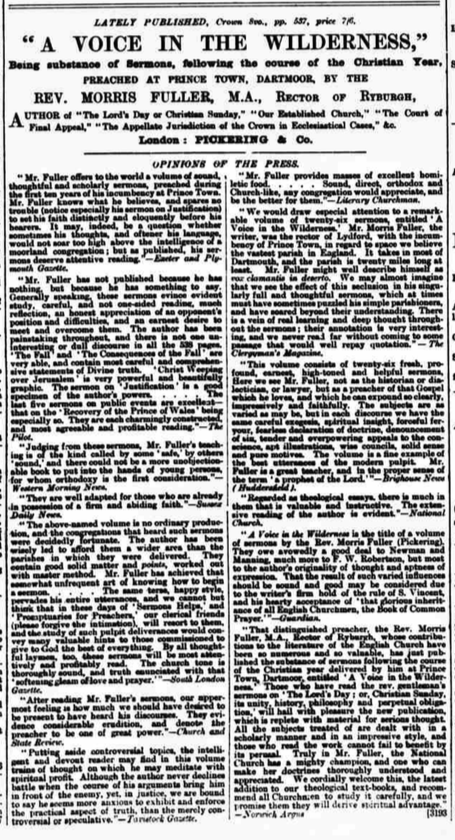
By the end of the year we find a short paragraph in the pages of the Shoreditch Observer
for December 13 1884 that provides some interesting corroboration for some of the tittle-tattle
of the “Scandal”:
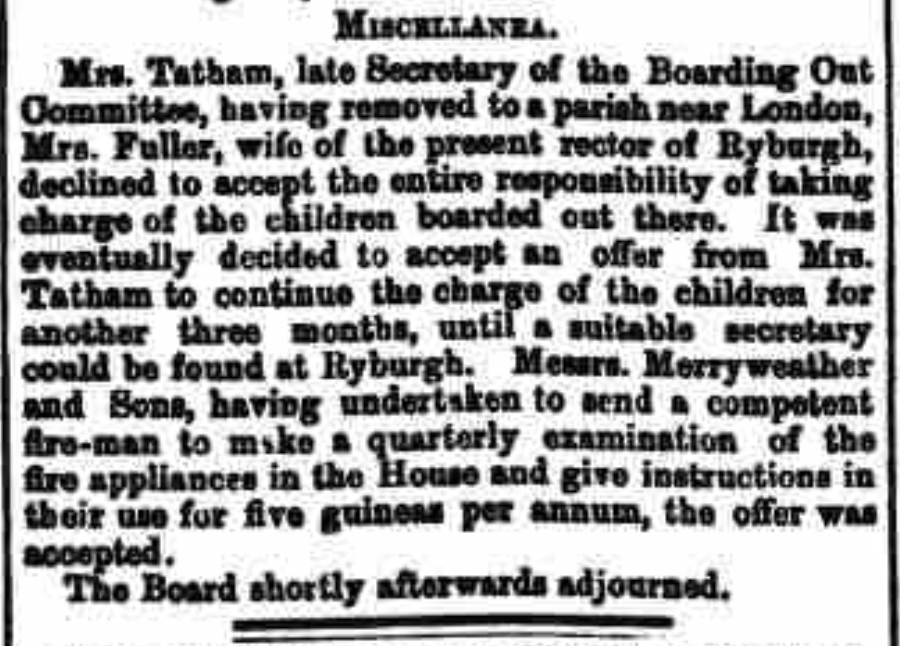
Everything seems rosy on his first acquaintance in Ryburgh and no doubt the wedding of his
daughter Florence in February 1885, reported as something of an unaccustomed spectacle
in the village, didn’t upset too many people either and everyone loves a good wedding!
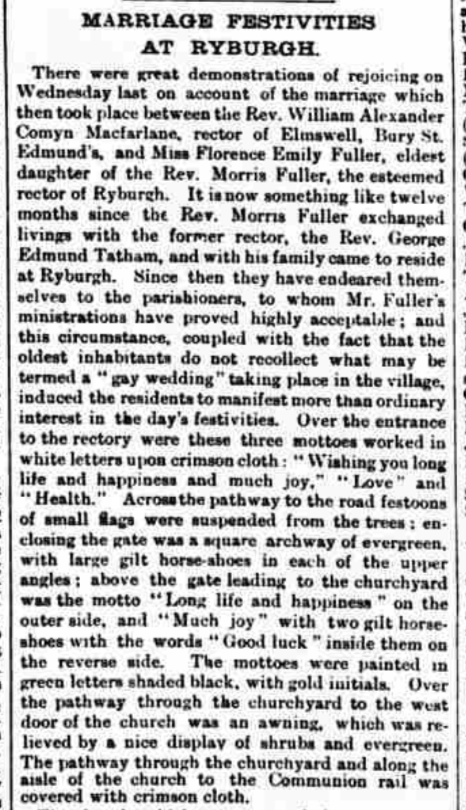
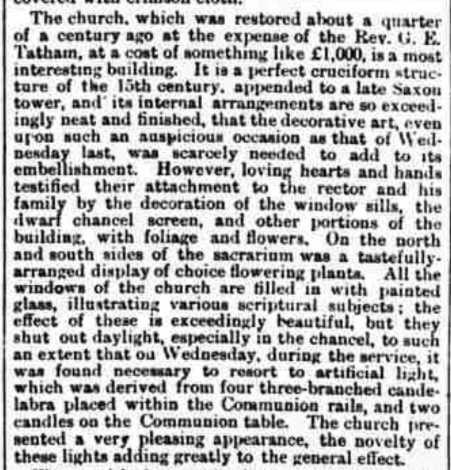
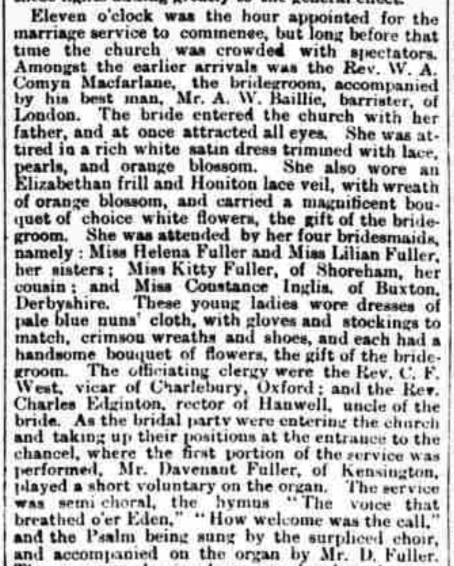
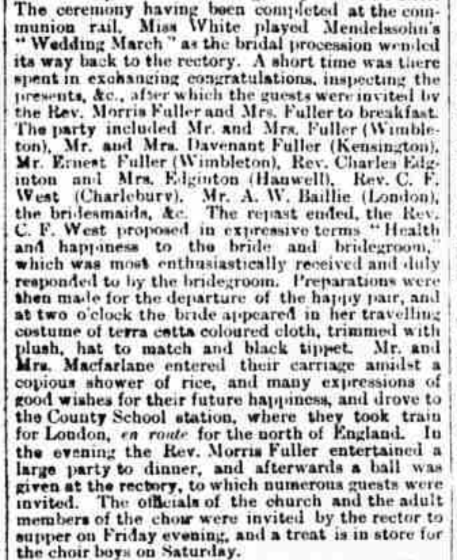
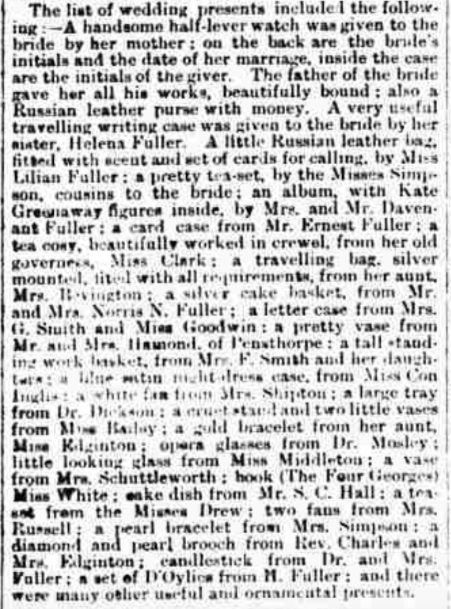
*********
On Saturday May 23rd 1885 Morris Fuller attended the Annual Meeting of the
Norwich Diocesan Church Defence Asscociation where they were to give and
discuss their annual report. To quote at some length some of the reported
proceedings is very useful for us in the 21st Century to appreciate, from the
Church’s point of view, just how threatened Society felt by the succession
of social and economic reform that moved through the 19th Century. Morris
was born at the time of the first Reform Act, Chartistism and the Corn Laws
and by the time of this meeting, some rural agricultural labourers had become
enfranchised and were eager to flex their newly acquired muscle. Morris had
inadvertantly jumped straight into the constituency of North West Norfolk
that was to return the first “ag lab”, Mr Joseph Arch, to parliament for the Liberals.
To quote from the Church Defence Association meeting:
“The committee……feel they cannot begin their report….better than by drawing
the attention of its members to the following resolutions passed by the Executive
Committee of the Liberation Society Jan 1st 1883:
1”Having regard to the fact that the bill for the extension of the Parliamentary
franchise in the counties has become law……..the committee are of the opinion
that then time has arrived when the question of disestablishment may be
resolutely pressed upon Parliament…..
2 They are further of the opinion that, as early in 1885 the enfranchised classes
and the new and altered constituencies will be called upon to exercise their
electoral rights, energetic measures should be immediately adopted by the
advocates of religious equality for securing, in every case in which it may be
practicable, the choice and the return of candidates favourable to their aims.
3. The committee with themselves forthwith take steps for giving effect to the
foregoing resolution, by action both in Parliament and in the constituencies,
and they urge their supporters throughout the kingdom to consider without
delay how they may best advance the movement in several localities.
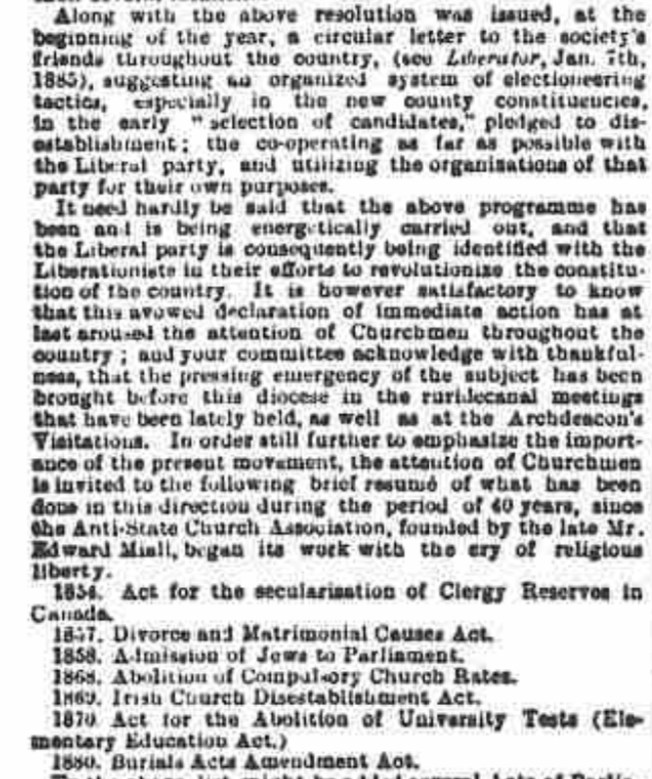
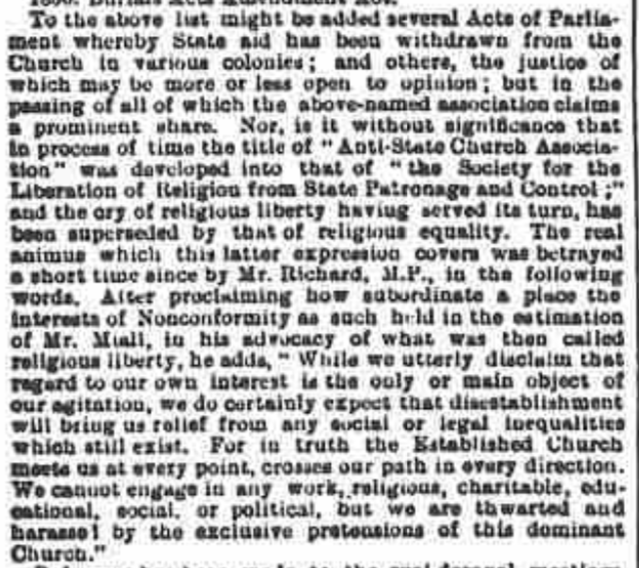
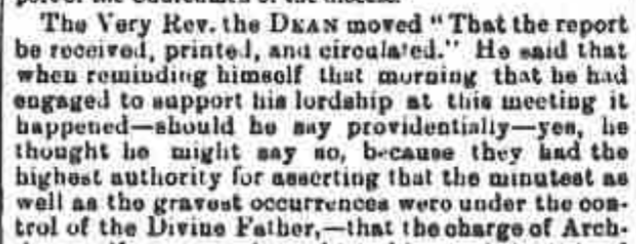

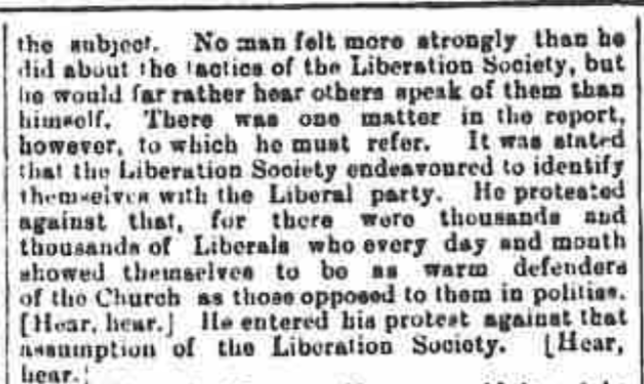
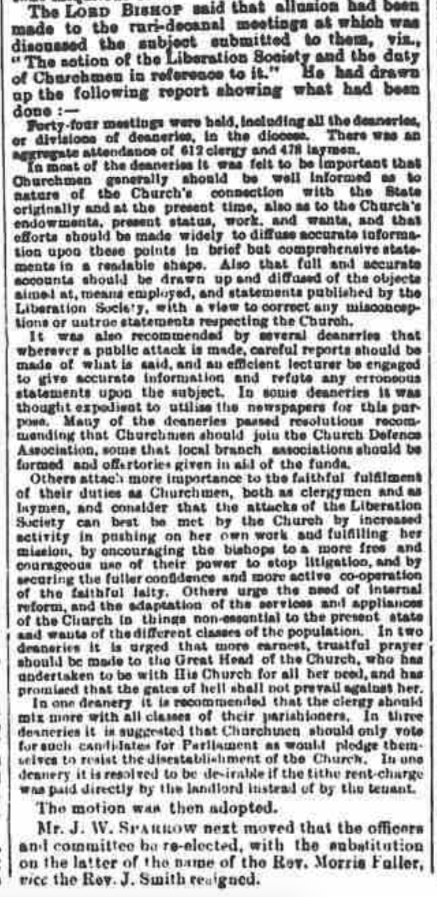

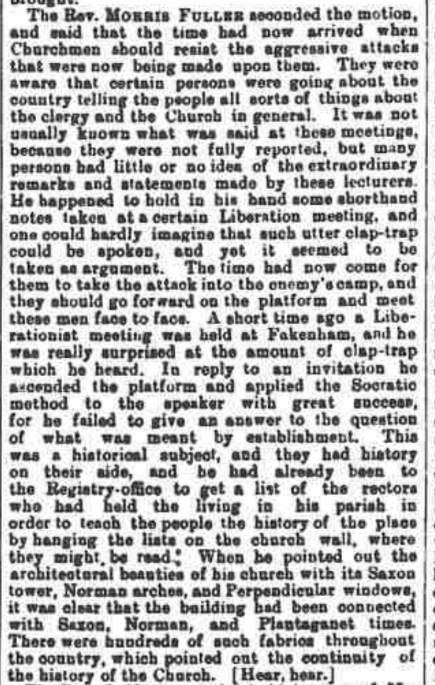
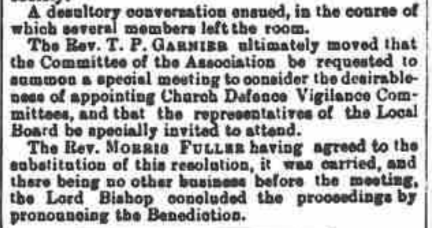
Even before this May meeting, Morris was on the case having got himself elected to the
Annual Conference as reported in the Norfolk Chronicle on 21st. March:
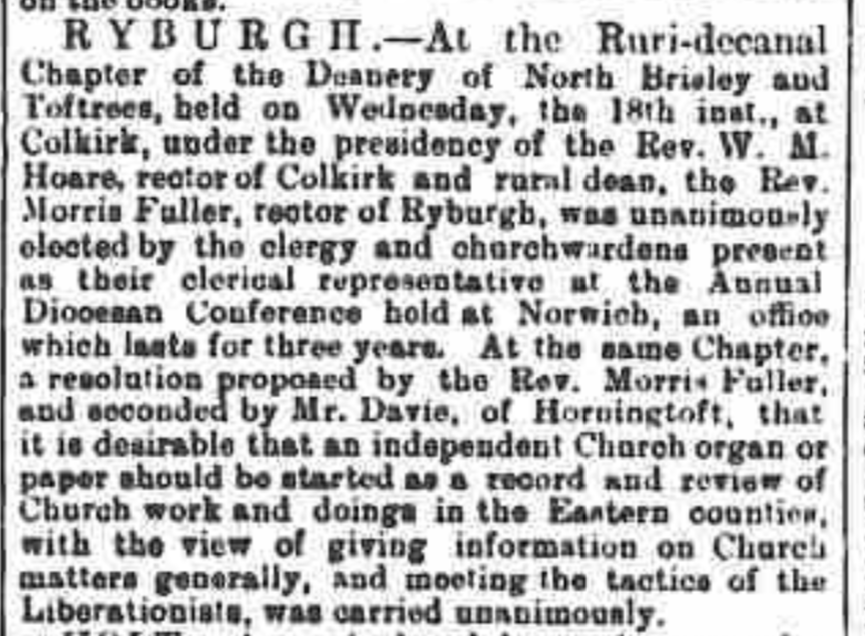
He then engaged in a tranche of letter writing to the Norfolk News, Norfolk Chronicle
and the Fakenham and Dereham Times. These he almost immediately published as
Letters on the “Disestablishment” Question,writing the preface from the safe haven of
the Beaconsfield Club in Pall Mall at the beginning of August.
The outreach of his letterwriting was not just limited to Norfolk as this reposte in from
Wales shows:
The Herald of Wales 5th. September 1885
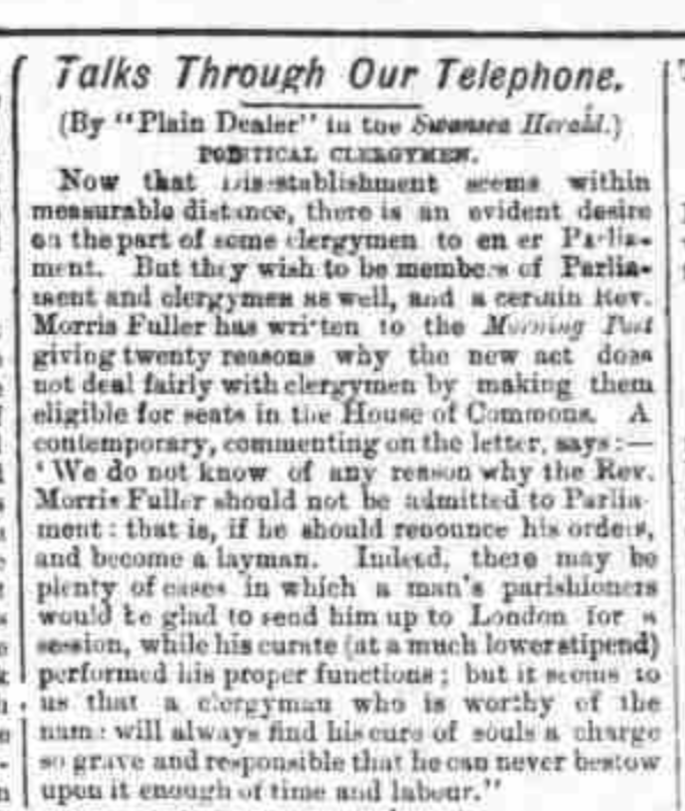
Just to show he was still attending to his flock at least in an ancilliary capacity,
this report of the Harvest Festival in October is definitely the lull before the
storm of the November electioneering:
Lynn Advertiser 3rd October 1885
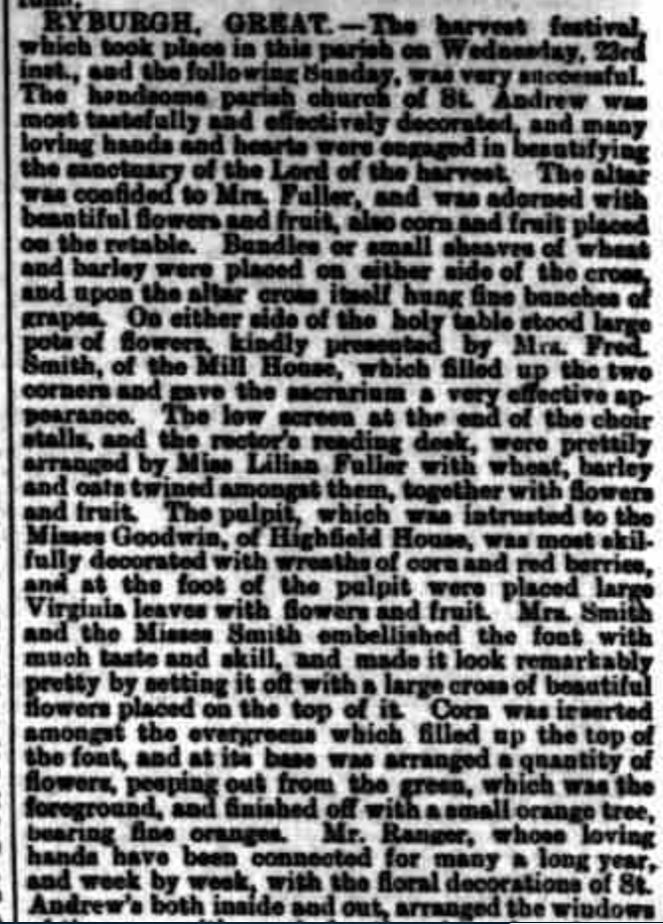
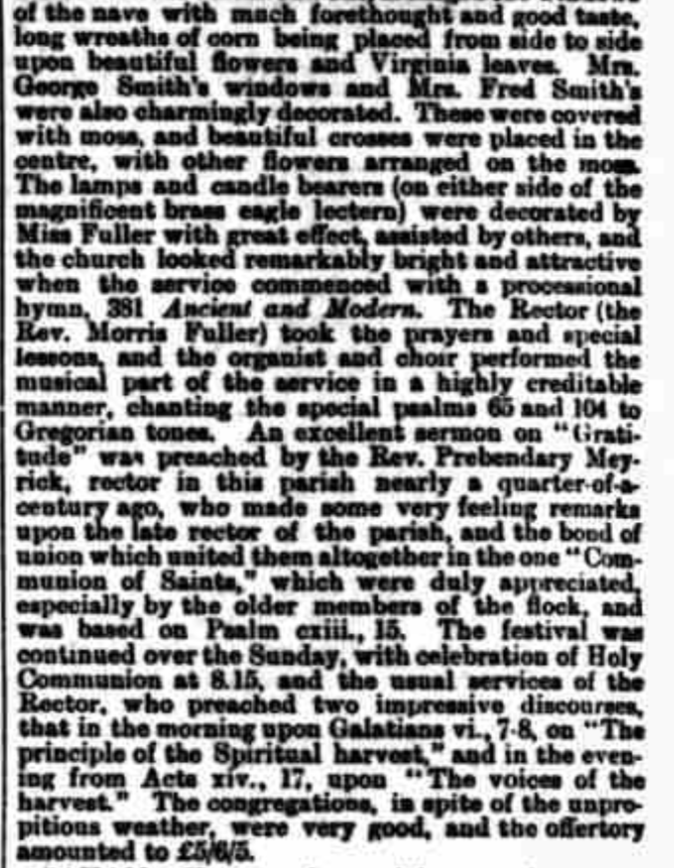
He did however find the time to join the Primrose League and I can imagine Morris to have been a keen wearer of the various paraphernalia of that body and of which there was quite a range. What seems quite remarkable however is that the League actually allowed women membership!
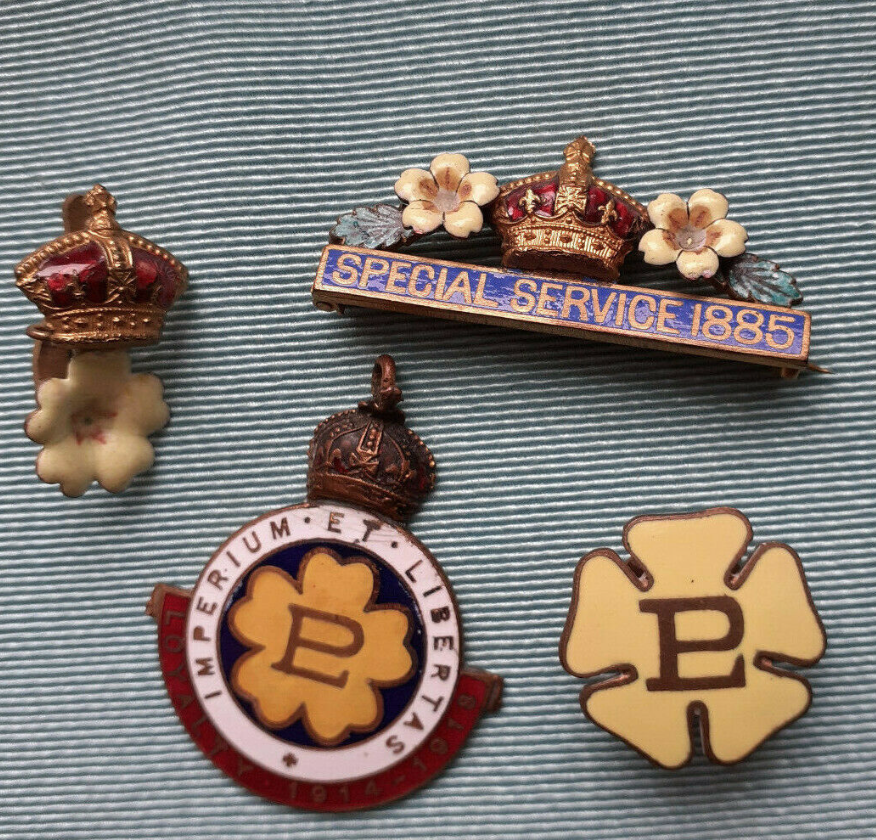
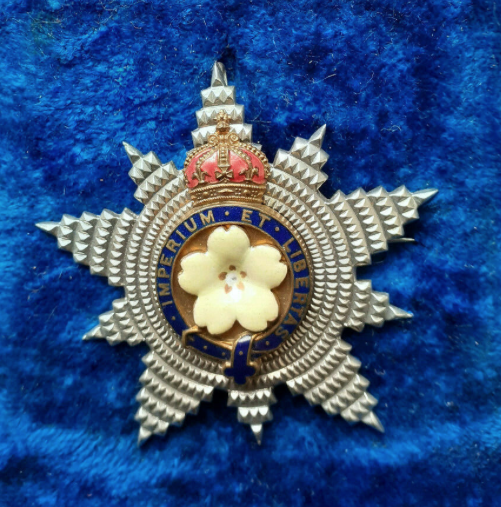
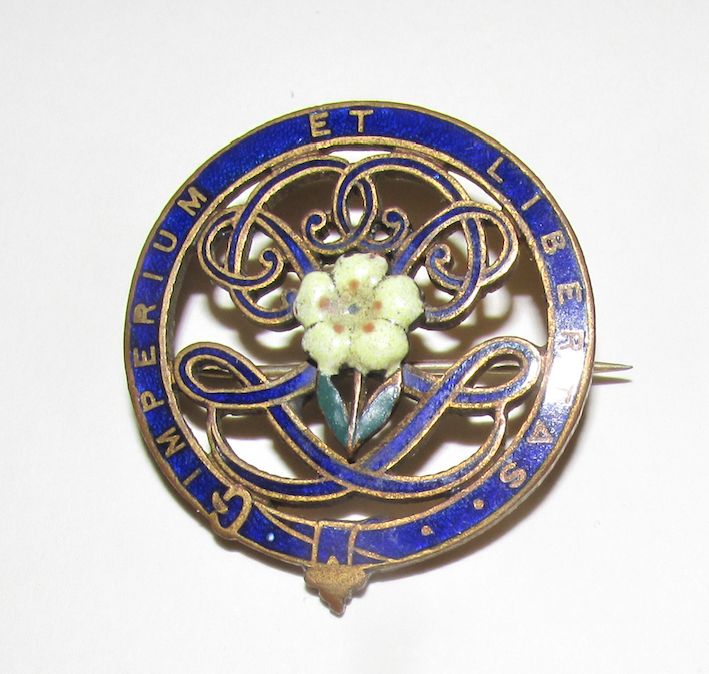
***************
The extension of the franchise into the rural areas brought a fresh topic to the village
reports in the local papers. The fact that Joseph Arch, “one of them”, even though
not from Norfolk, was to be a candidate for whom they could cast their first ever
votes was a cause of much interest. The appearance of Mr Arch in the 1897 book
"Notables of Britain" might possibly have evinced a shaking of the head from Morris
had he been looking through the volume in the clergy section to find he
wasn't there.
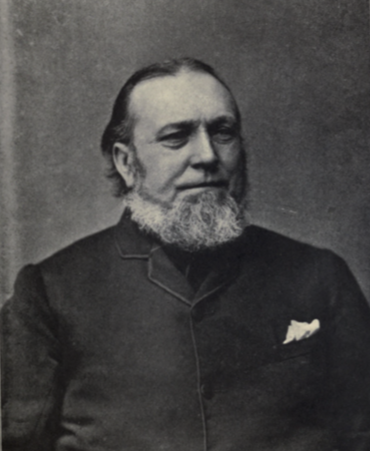
Norwich Mercury 18th July 1885:
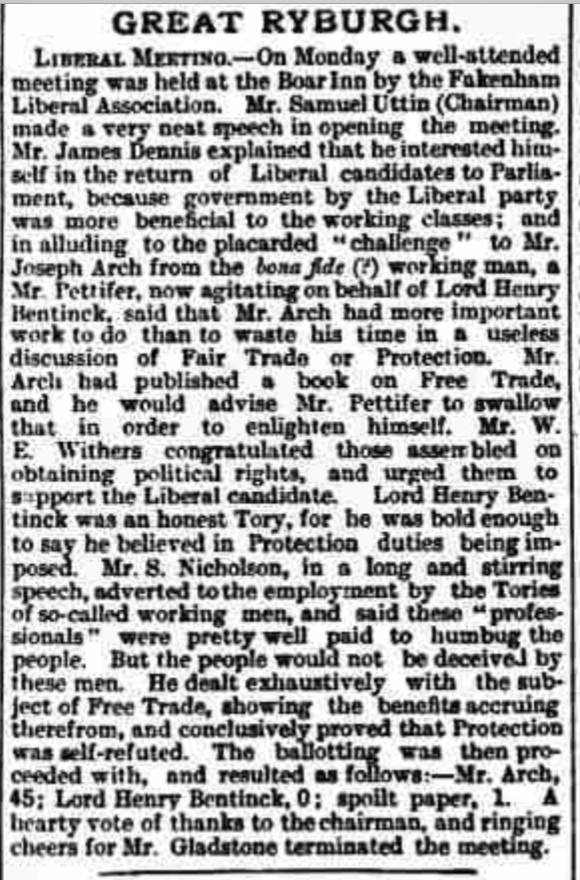
October in Ryburgh is when we say in the modern parlance "it all kicked off".
One comes to the inevitable conclusion when reading the “substance” of two
semons delivered to the poor churchgoers of Ryburgh, that his zealous and
patronising haranguing from the pulpit was bound to deter the “common man”
from attending services at St Andrew’s. The more so when it was justifiably
seen as being delivered as part of the Church Defence Association’s
masterplan for defeating the Liberals, or was it Liberationists, at the forthcoming
general electon? These sermons entitled
The Alleged Tripartite Division of Tithes in England AND THE POOR...
preached on National Church Sunday October 25th 1885 were even advertised
in advance and sparked off another spate of letters in the local papers
beginning on November 4th 1885 :
Norwich Mercury
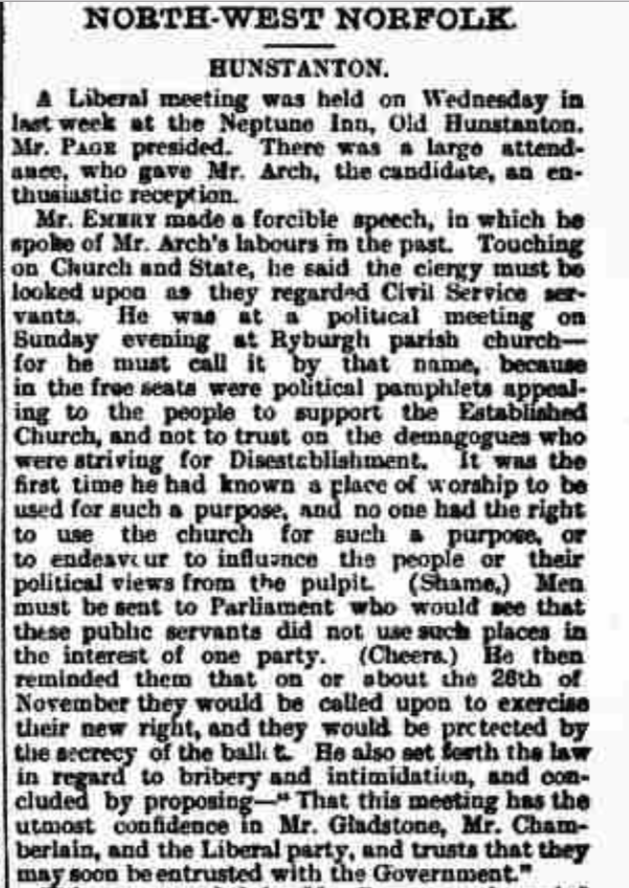
To which Morris responds:
Norwich Mercury November 14th 1885
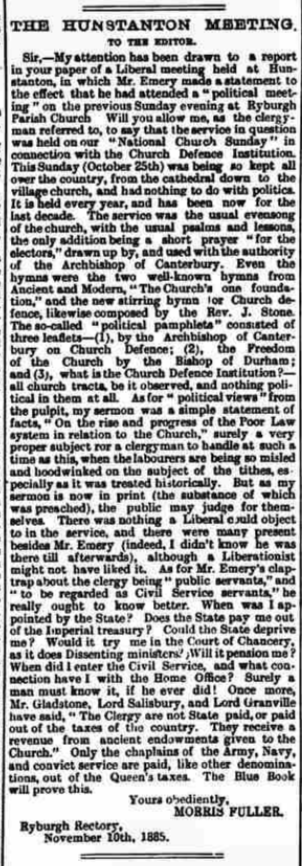
In the same issue of the Norwich Mercury November 14th 1885 a real political
meeting is held under the heading Little Ryburgh?
Surely this must be Great Ryburgh if it was at the schoolroom:
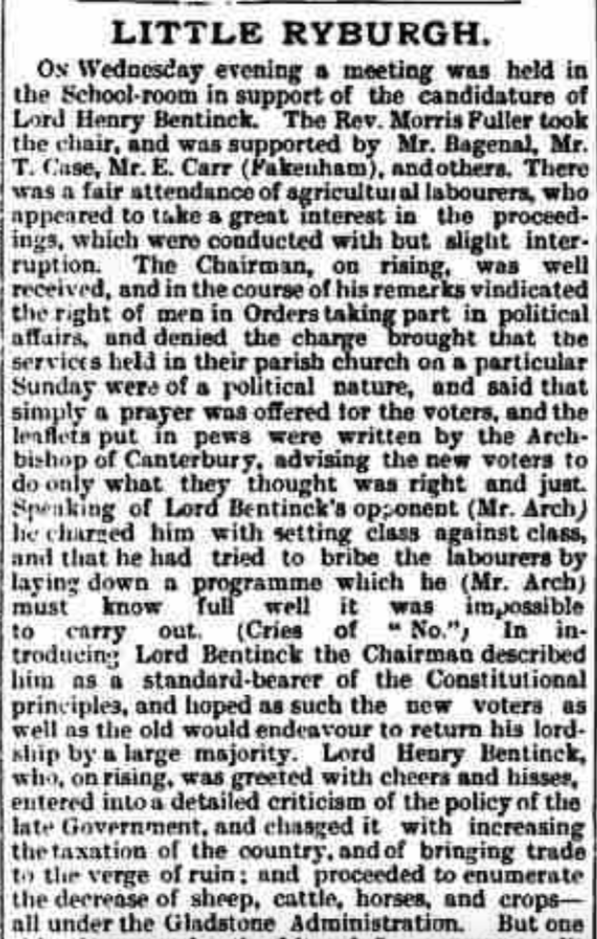
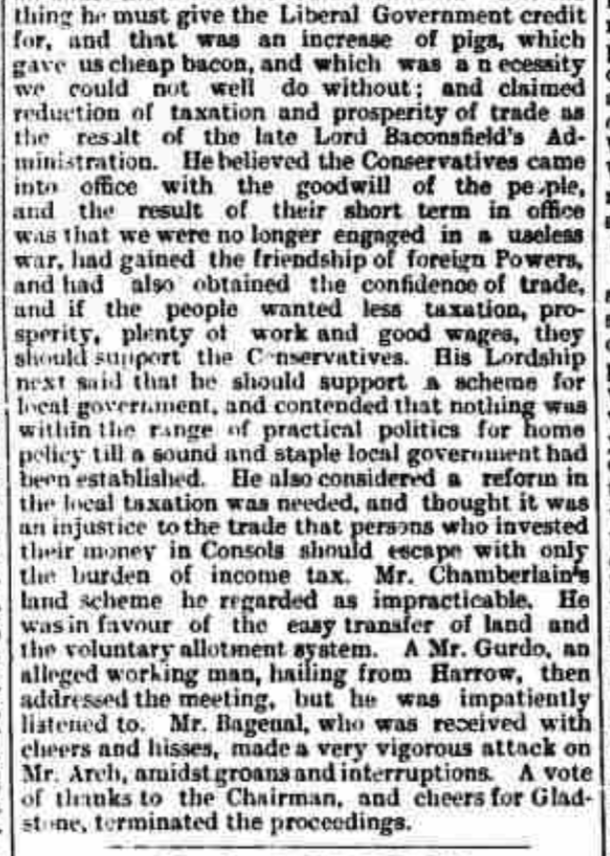
On November 19th, Morris wrote a wordy Eulogy promoting Lord Henry Bentinck :
Lynn Advertiser November 28th 1885
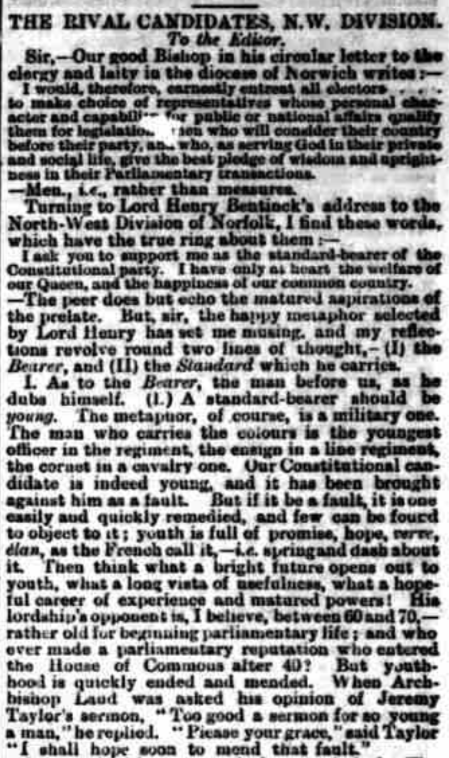
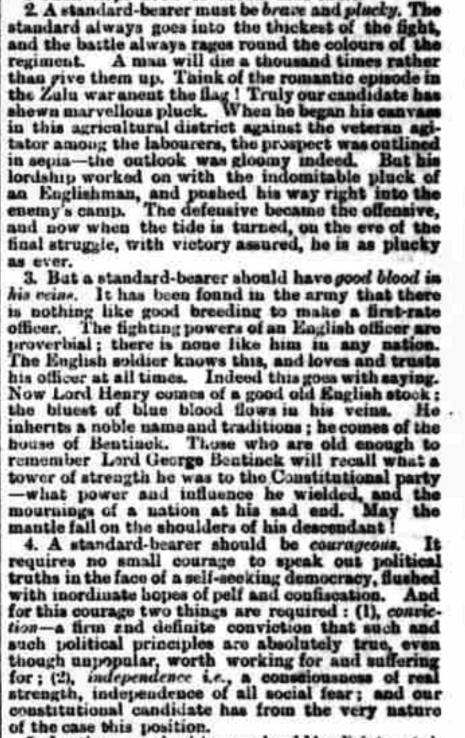
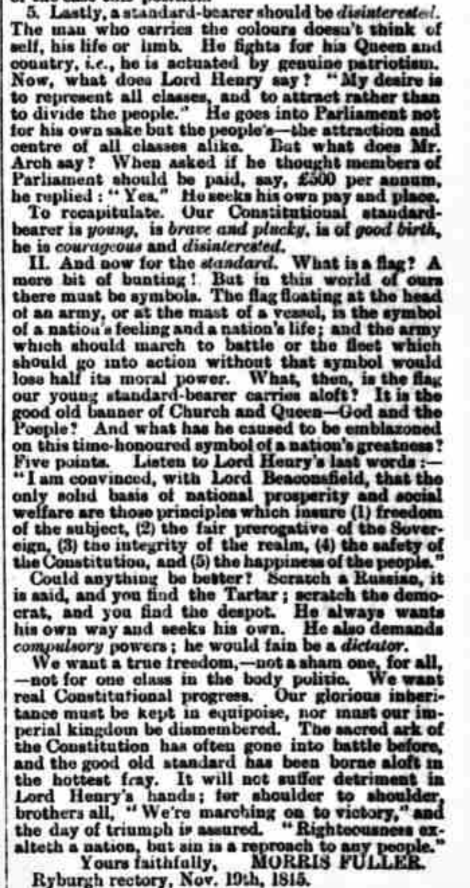
Sauce for the goose was however not good enough for the Liberal gander:
Lynn Advertiser November 21st 1885
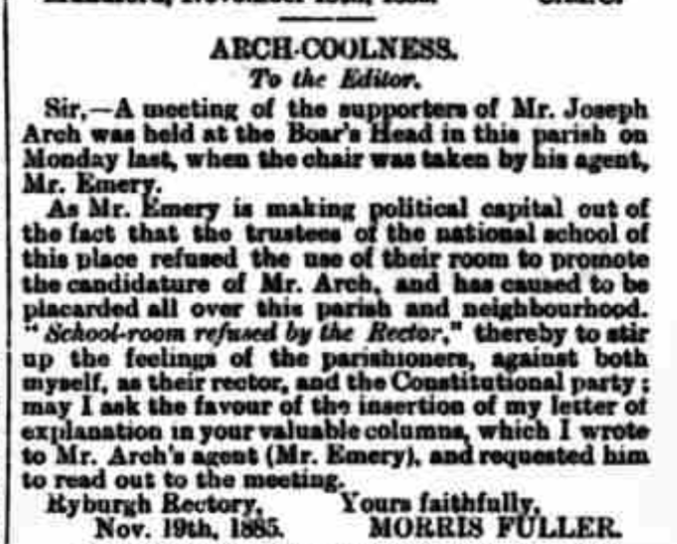
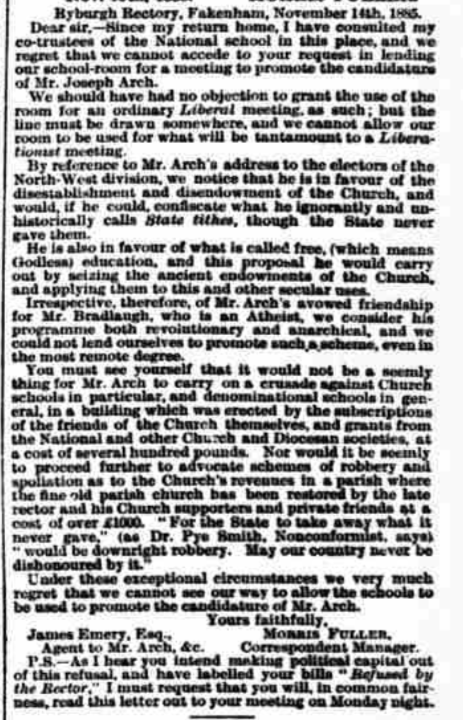
Joseph Arch's agent penned a swift reply in the same day's Eastern Evening News
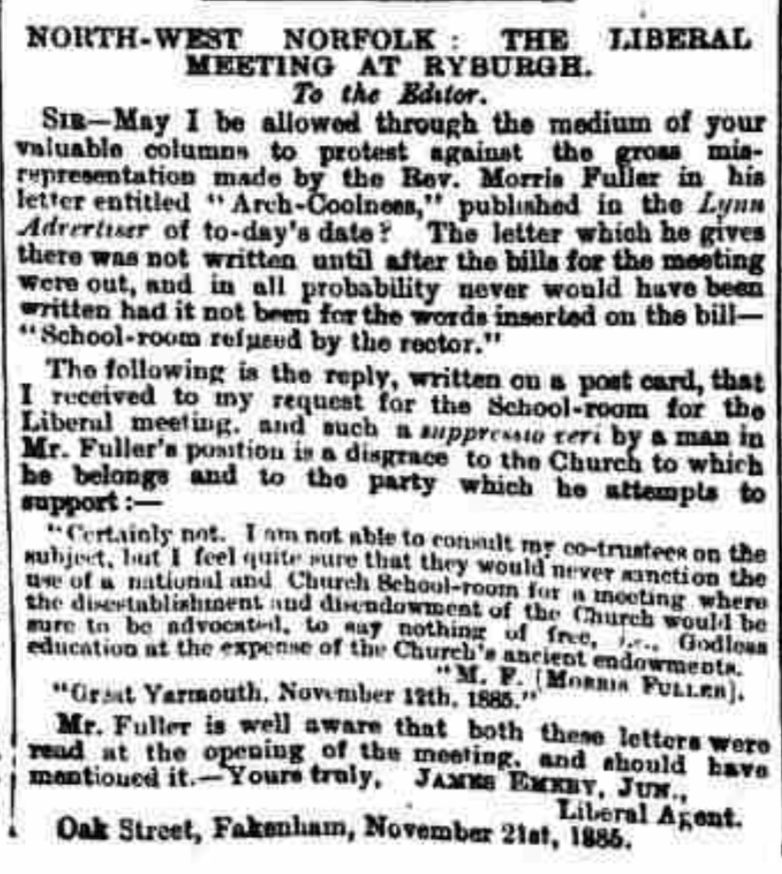
On November 28th a Ryburgh inhabitant penning himself "An Outsider" sent the following to the Norwich Mercury:
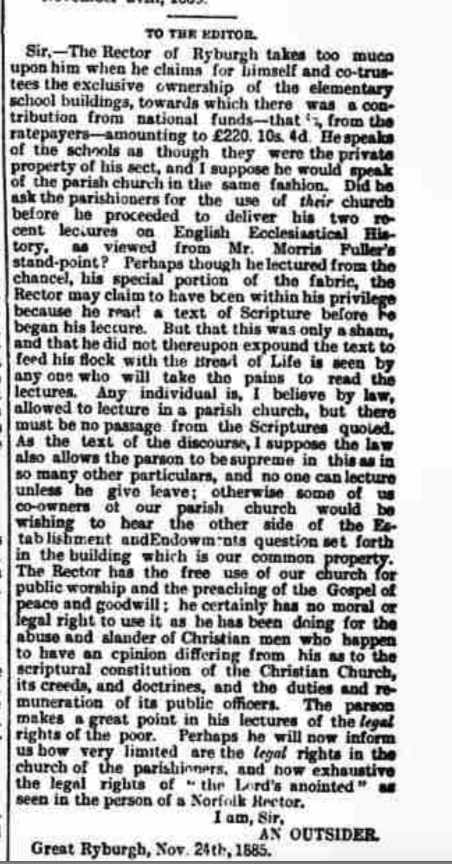
Then we find " A New Voter" having his say:
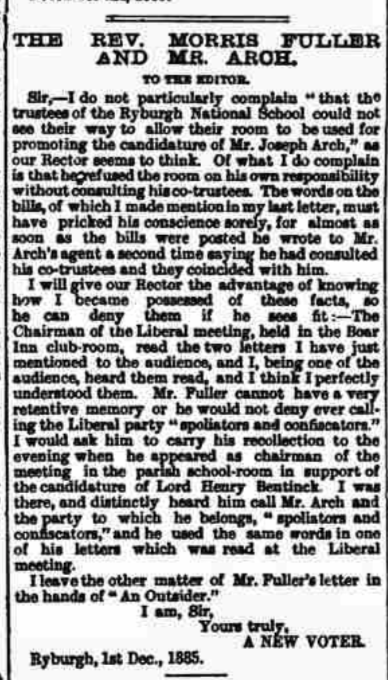
and joined by "A Reformer" :
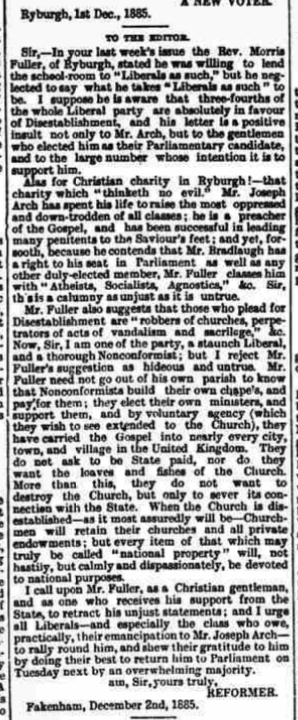
And of course Morris replies:
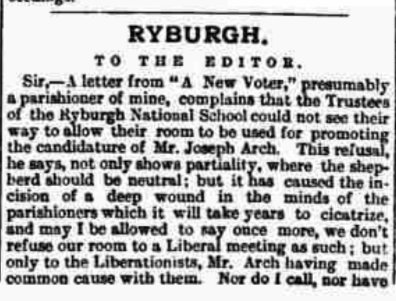
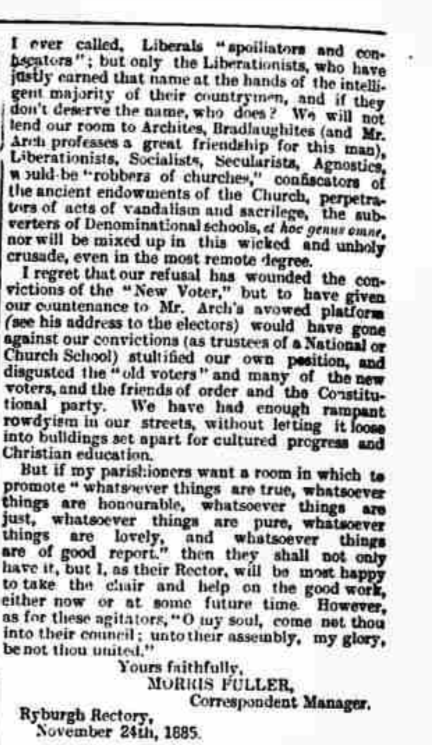
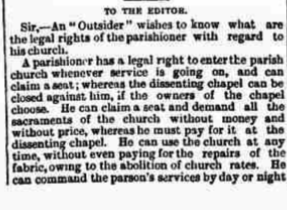
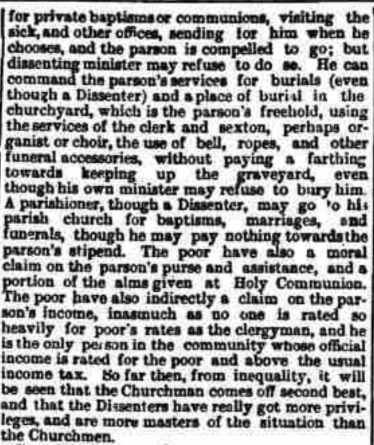
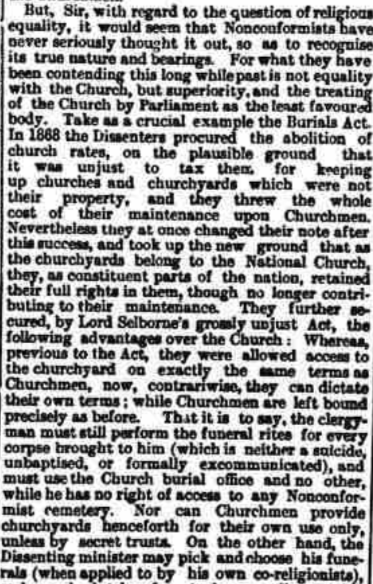
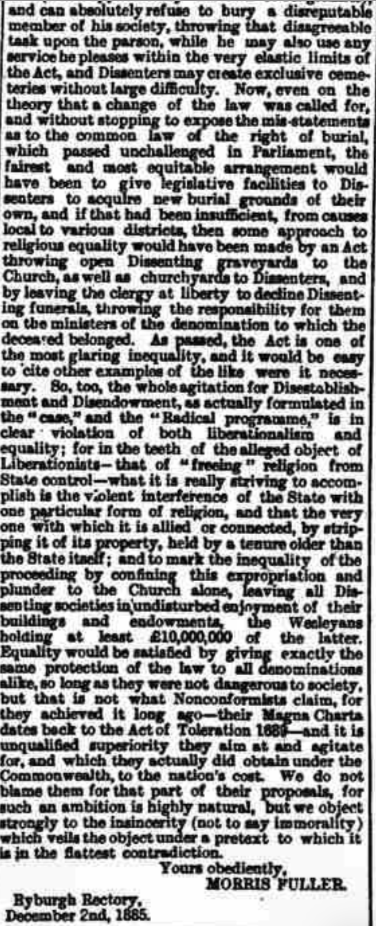
Still banging the Election drum he had this to say on December 5th in the Lynn Advertiser before the vote was decided:
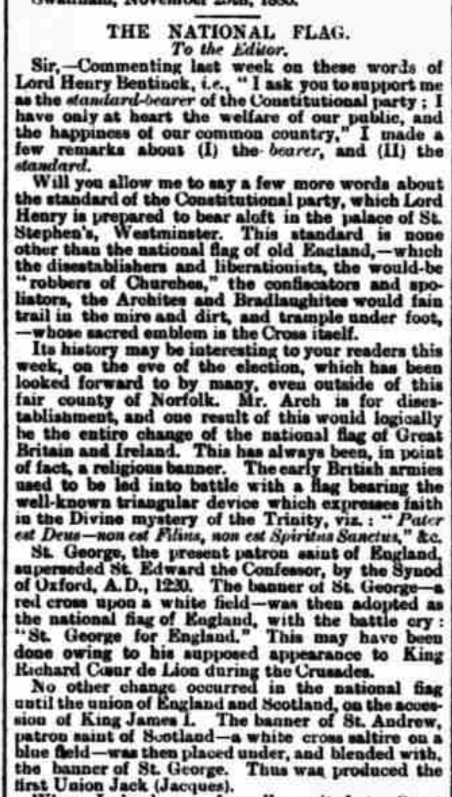
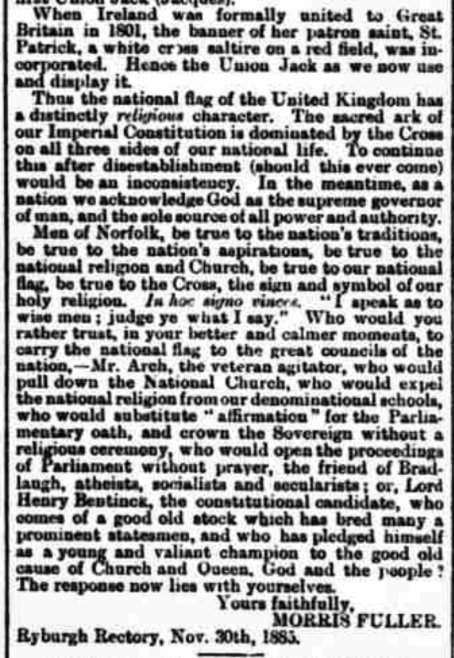
Did he earn a Primrose League "Special Service 1885" badge for his contribution to the Election that year? He must have been a pretty strong contender!
************
The General Election took place during November - December 1885 and Joseph Arch was duly elected Member of Parliament for the constituency of North West Norfolk as the first "Ag Lab" to sit in the House.
Norwich Mercury December 12th. 1885
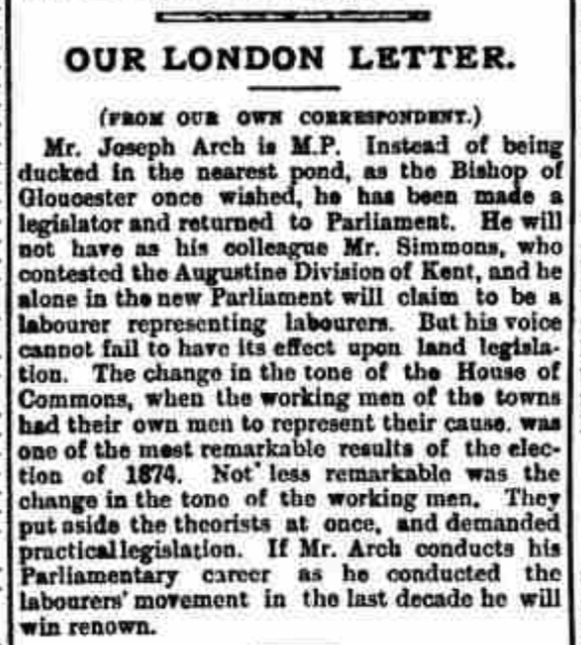
Morris as usual can not stop himself from having the last word in the same issue as the above:
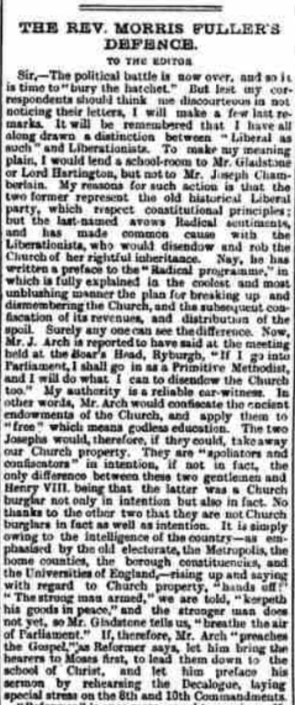
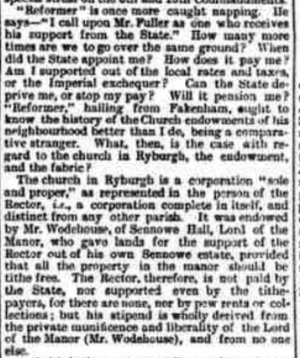
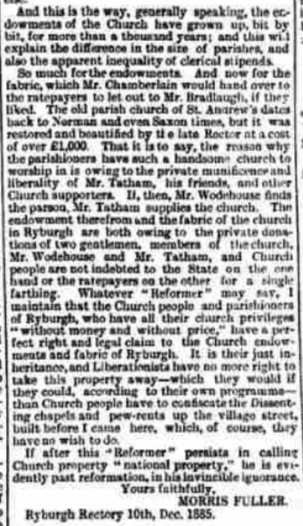
For Joseph Arch however, It was a short lived victory as Lord Henry Bentinck re-took the seat in June 1886 following Gladstone's defeat. Joseph Arch was returned again in 1892 and retired from Parliament in 1900.
For this year, 1885 however, Morris seems to have hung up his newspaper pen to dry and was possibly re-stocking what he would call his knibs